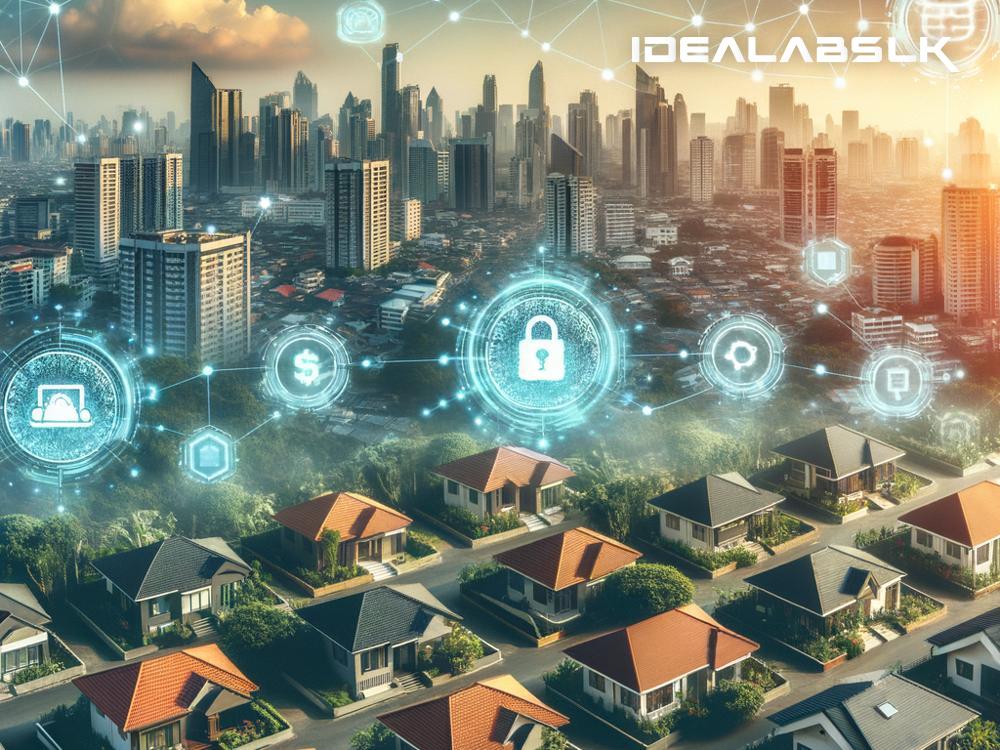Blockchain and the Future of Real Estate Data Sharing
In the complex world of real estate, where vast amounts of data are shared, verified, and transferred every single day, trust and efficiency are paramount. This is where blockchain technology, best known for powering cryptocurrencies like Bitcoin, is stepping in to revolutionize the industry. But what exactly is blockchain, and how can it transform real estate data sharing? Let's break it down into simple terms.
Imagine you're playing a game where each move is recorded on small blocks. Each block is connected and visible to every player, ensuring no one can cheat. This is the essence of blockchain – a digital ledger that securely and transparently records transactions across a network of computers.
1. Why Real Estate Needs Blockchain
Real estate transactions involve multiple stakeholders, including buyers, sellers, agents, lawyers, and banks. The process is often slow, opaque, and fraught with paperwork and potential for error. Enter blockchain, which promises a smoother ride by offering shared databases that are open, secure, and unchangeable. It's like having a shared Google Doc for real estate transactions, except it's far more secure, and no single party can alter past entries without everyone else noticing.
2. Enhancing Data Sharing and Trust
Blockchain creates an unbreakable chain of data records. Each transaction or data point added to a blockchain is verified by multiple parties and encrypted, making fraud nearly impossible. For real estate, this means property histories, including ownership, liens, and financing, can be securely recorded and easily accessed. This transparency not only builds trust among parties but also dramatically reduces the time and cost associated with traditional property checks.
3. Streamlining Transactions
Typically, buying or selling a property involves heaps of paperwork and a long wait time as documents are verified and funds are transferred. With blockchain, smart contracts – self-executing contracts with the terms directly written into code – can automate these processes. Imagine a scenario where the transfer of a property title is as easy as sending an email, without the need for intermediaries. This not only speeds up transactions but also reduces the possibility for errors and fraud.
4. Democratizing Real Estate Investments
Blockchain technology also opens up new opportunities for real estate investment. Traditionally reserved for the wealthy and institutional investors, blockchain enables the tokenization of property assets, meaning a property can be divided into shareable tokens that represent a portion of the property value. This allows for fractional ownership, making real estate investment more accessible to the general public. Imagine being able to own a piece of a commercial building or a luxury resort for the price of a smartphone.
5. Improving Data Management and Accessibility
One of the biggest challenges in real estate is the management and sharing of vast amounts of data amongst various stakeholders. Blockchain provides a centralized platform where all the relevant data can be stored, updated, and accessed in real time by authorized parties. This doesn’t just apply to property titles and transactions; it extends to contracts, permits, and even architectural plans. The efficiency gained from this streamlined data management can significantly reduce bottlenecks in the real estate process, from planning and development to sales and leasing.
6. Challenges and Considerations
Despite its potential, blockchain in real estate is still in its infancy, and there are hurdles to overcome. These include regulatory challenges, the technical sophistication required to implement blockchain solutions, and the need for mass adoption by stakeholders across the real estate industry. However, as technology advances and more people understand the benefits of blockchain, its adoption in real estate is likely to grow.
Conclusion
Blockchain technology has the potential to transform the real estate industry by making transactions faster, more secure, and more transparent. It improves data sharing among stakeholders, streamlines transactions through smart contracts, and democratizes real estate investments. Although barriers to widespread adoption exist, the future of real estate data sharing with blockchain looks promising. As this technology continues to evolve, it may well become the new standard for how we buy, sell, and manage property in the 21st century.

